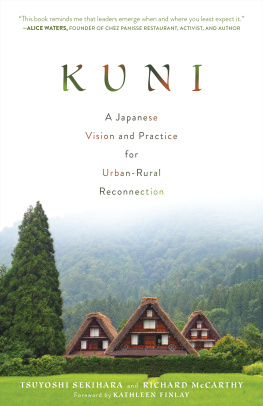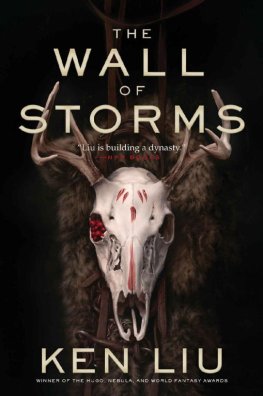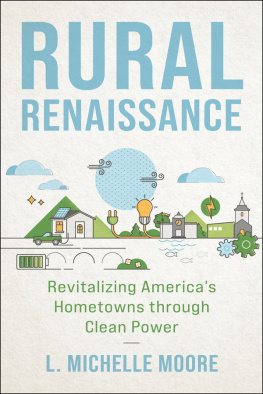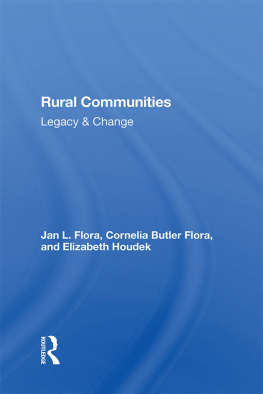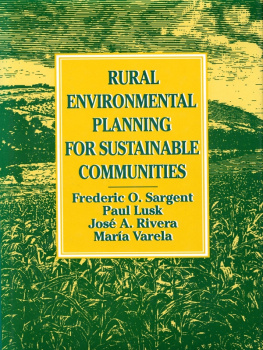
Praise for Kuni
Reading Kuni makes me want to dive into rural Japan. Heartbreaking in many ways, this book reminds me that leaders emerge when and where you least expect it.
Alice Waters, founder of Chez Panisse restaurant, activist, and author
Mr. Tsuyoshi Sekihara is not a scholar. But in a different era, he would have been. Readers will be surprised by the strength of words and depth of thought he produces. If society understands the value of his work, it will be a sign that it has become a little better.
Kumi Seike, professor at Ritsumeikan Asia Pacific University
We need more kunihealing and bridging between people divided by geography. From Japan to the Americas, forgotten rural communities desperately need new paths to forge a future.
Ricardo Salvador, senior scientist and director of the Food and Environment Program at the Union of Concerned Scientists
What are the universal values common to all humanity? In a kunia place full of vitality and where humans have pride and free willindividuals continually engage in courageous practice and never cease to question their work. In Tsuyoshi Sekiharas new theory of kuni, we find signs of light that will help us survive in this difficult time.
Takao Aoki, board chair of KODO Group/Kitamaesen Co., Ltd.
This is a much-needed and hugely attractive ideaor set of ideasfor overcoming the rural/urban divide, which sadly does exist and usually breeds a lack of understanding that goes both ways.
Deborah Madison, cookbook author and chef
I am immensely proud of Kuni. This book is the outcome of a multi-year US-Japan rural exchange program and is a testament to how exchange programs can positively impact international dialogue and understanding and help innovative leaders see their work in new, illuminating, and fresh ways. Kudos to Richard McCarthy and Tsuyoshi Sekihara, who generously wrote this book so that others working on the rural-urban divide can benefit from their expertise and experience.
Ambassador Motoatsu Sakurai, president emeritus of Japan Society, Inc.
This remarkable East meets West manifesto for the best of an enlightened globalization may bring us all back to where we should be: home. Sekihara and McCarthy urge us to return home, to defend fragile rural places that our criminal food system plunders. Best read over rice dishes.
Carlo Petrini, founder of Slow Food
In Kuni, we witness how valuable community-level exchanges between the United States and Japan can be to facilitate sharing of lessons learned and best practices on common challenges facing our two countries. As two innovative leaders of their respective societies, McCarthy and Sekihara not only help shed light on a key issue of concern shared by the United States and Japan, but also encourage us all that important ideas and experiences are being shared between the two countries to strengthen urban-rural ties and help rural communities thrive. Their collaboration is an exceptional manifestation of sub-national exchanges that form a strong foundation for an enduring US-Japan relationship, and will also be a significant resource for rural revitalization efforts in communities around the world.
Kazuyo Kato, executive director of Japan Center for International Exchange (JCIE/USA)
Richard McCarthy is one the most playful and ground-breaking thought leaders in the Americas.
Gary Nabhan, ethnobotanist and author
Copyright 2022 by Tsuyoshi Sekihara and Richard McCarthy. All rights reserved. No portion of this book, except for brief review, may be reproduced, stored in a retrieval system, or transmitted in any form or by any meanselectronic, mechanical, photocopying, recording, or otherwisewithout the written permission of the publisher. For information contact North Atlantic Books.
Published by
North Atlantic Books
Huichin, unceded Ohlone land
aka Berkeley, California
Cover photo skywings00 via Shutterstock
Cover design by Susan Zucker
Book design by Maureen Forys, Happenstance Type-O-Rama
Kuni: A Japanese Vision and Practice for Urban-Rural Reconnection is sponsored and published by North Atlantic Books, an educational nonprofit based in the unceded Ohlone land Huichin (aka Berkeley, CA) that collaborates with partners to develop cross-cultural perspectives; nurture holistic views of art, science, the humanities, and healing; and seed personal and global transformation by publishing work on the relationship of body, spirit, and nature.
North Atlantic Books publications are distributed to the US trade and internationally by Penguin Random House Publisher Services. For further information, visit our website at www.northatlanticbooks.com.
Library of Congress Cataloging-in-Publication Data
Names: Sekihara, Tsuyoshi, author. | McCarthy, Richard (Activist), author.
| Finlay, Kathleen (Activist), writer of foreword.
Title: Kuni : a Japanese vision and practice for urban-rural reconnection /
Tsuyoshi Sekihara and Richard McCarthy ; foreword by Kathleen Finlay.
Other titles: Japanese vision and practice for urban-rural reconnection
Description: Berkeley, California : North Atlantic Books, [2022] | Includes
bibliographical references and index. | Summary: Tsuyoshi Sekihara and
Richard McCarthy both have a deep respect for the environment and have
immersed themselves in their communities to better educate others on how
to create a more sustainable lifestyle Provided by publisher.
Identifiers: LCCN 2022011379 (print) | LCCN 2022011380 (ebook) | ISBN
9781623177317 (paperback) | ISBN 9781623177324 (ebook)
Subjects: LCSH: Cooperative societies. | Rural-urban divide. | Rural-urban
relations.
Classification: LCC HT381 .S47 2022 (print) | LCC HT381 (ebook) | DDC
307.74dc23/eng/20220601
LC record available at https://lccn.loc.gov/2022011379
LC ebook record available at https://lccn.loc.gov/2022011380.
This book includes recycled material and material from well-managed forests. North Atlantic Books is committed to the protection of our environment. We print on recycled paper whenever possible and partner with printers who strive to use environmentally responsible practices.
Dedicated to friend and author Ryoko Sato (19622019)
Foreword
The moment Sekihara-san entered my house, I knew I was in for an intellectual and spiritual journey. I was not disappointed.
Invited by my friend and colleague Richard McCarthy, I hosted Sekihara-san to hear and share his thoughts about the connections between rural and urban places with a handful of thought leaders working on increasing the ties between those often disparate worlds in New York State. I expected an evening of learning, inspiration, and cultural exchange. But being in Sekihara-sans presence is something more. Even through translation, one immediately recognizes that his is no ordinary soul. He gives off the wise elder aspect that one might expect, but he also exudes a sort of chummy feellooks you right in the eye and talks very directly about challenges and hopes as if youve known each other for years. The cumulative effect is that everything he is saying just makes so much sense.
Ive spent the last decade running the Glynwood Center for Regional Food and Farming with a mission to create a regional identity for the Hudson Valley that centers on farming. Our hypothesis is that if we recognize the central role that farming has and still plays in this regionfor our health, for our economy, for our environment, and culturally for our communitiesthen the sector, threatened by industrialized food and development pressure, has a chance to thrive. We use food and farming to build local economies, to nourish our communities, to attract and entertain our visitors.
Next page
